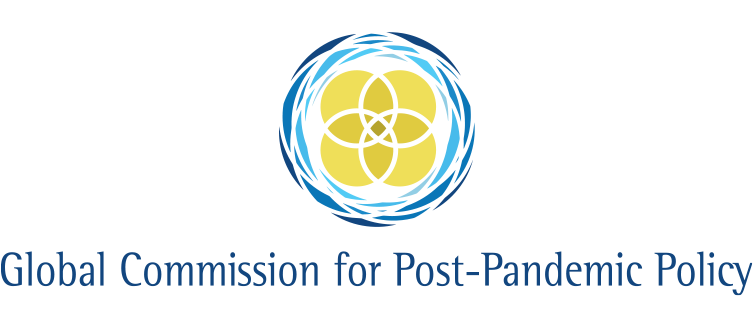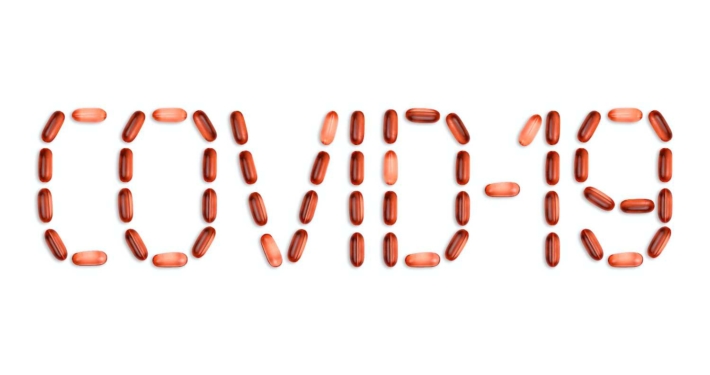The Pandemic, week to May 10th
Health
This week, COVID-19 infection rates began to decline worldwide, ending seven weeks of rising global case numbers fuelled by sharp rises in India and parts of Latin America. This change is being driven by an apparent stabilisation of India’s infection rates and strongly declining case numbers in Europe and the United States. In South America, infection rates remain high.
The current COVID-19 outbreak in India continues to be the worst recorded anywhere since the pandemic began in terms of absolute numbers. On May 6th, the country recorded 414,188 new confirmed COVID-19 cases—a single day record. That grim statistic was quickly overshadowed by another when 4,187 confirmed COVID-19 deaths were recorded on May 7th, also a new daily high.
Hopes that India’s outbreak might reach its peak this week were dashed as the second wave of infections began to spread from the country’s major cities to its villages, especially those that hosted recent election rallies. This is cause for grave concern. The country’s rural areas host over two-thirds of the Indian population of 1.4 billion and are severely ill-equipped to handle an outbreak. President Narendra Modi continues to resist pressure to impose a national lockdown.
In a new report, the Institute for Health Metrics and Evaluation (IHME) at the University of Washington estimates that the COVID-19 pandemic has caused nearly 6.9 million deaths worldwide—more than twice the official figure. The estimate is based on the analysis of up-to-date excess mortality figures maintained by governments worldwide, correcting for the underreporting of deaths in official statistics. The updated analysis suggests the United States has had more COVID-related deaths to-date than any other country (905,289), followed by India (654,395), Mexico (617,127), Brazil (595,903) and Russia (593,610).
In the United States, President Joe Biden announced a new goal : to have at least one COVID-19 vaccine dose administered to 180 million Americans—70% of the country’s adult population—by July 4th’s Independence Day celebrations. However, vaccine demand has plummeted countrywide, forcing states to turn down deliveries of allocated vaccine doses from the federal government and pushing daily vaccination totals below 2 million from 3.38 million at the mid-April peak. The fall in demand suggests that vaccine hesitancy and complacency are coming strongly into play.
In the European Union, the roll-out of COVID-19 vaccines is now in full swing. In the last month, the pace at which doses are being administered has increased dramatically across the continent, with daily doses increasing 60% in France, 90% in Italy and 145% in Germany in that time. The bloc owes its progress to a deepened reliance on the Pfizer-BioNTech COVID-19 vaccine, production of which has grown in recent months thanks to a plant at Marburg in Germany. The European Union is now on track to match forecasted vaccination levels in the United States by the middle of the summer. The European Commission has chosen not to place any new orders of the Oxford-AstraZeneca vaccine beyond June when its current contract ends. The move follows the Commission’s choice last month to launch legal action against AstraZeneca for not fulfilling its commitments for the supply of COVID-19 vaccines and for not having a reliable plan to ensure timely deliveries.
The World Health Organisation granted emergency-use approval to the COVID-19 vaccine developed by the Chinese state-owned company Sinopharm. The vaccine can now be distributed as part of the COVAX initiative, a scheme to supply low and middle-income nations. Elsewhere, the pharmaceutical giant Pfizer and partner BioNTech became the first companies to apply to the United States Food and Drugs Administration for full approval of their COVID-19 vaccine. Moreover, two new studies suggest that the Pfizer-BioNTech vaccine is highly effective against the various coronavirus variants of concern; and Canadian regulators have decided to extend approval of the Pfizer-BioNTech vaccine to children between the ages of 12 and 15.
Economy
In the United States, Treasury Secretary Janet Yellen suggested in an interview with The Atlantic that interest rates might need to be raised to keep the country’s economy from overheating if President Joe Biden’s spending plans are passed into law. The comments briefly spooked Wall Street. Later that day, Yellen clarified in an interview with the Wall Street Journal that she does not expect inflation to become a serious problem.
The United States Bureau of Labour Statistics released its April jobs data. The American economy added only 266,000 jobs in April, undershooting forecasts. The figures reinforce anecdotal evidence from companies suggesting that despite growing consumer spending employers are struggling to find enough workers to meet their needs. The Federal Reserve Chair Jerome Powell suggests this likely reflects a mixture of a skills gap, intense childcare obligations for parents and lingering virus fears among workers.
The Chinese economic recovery continues apace. According to China’s General Administration of Customs, exports surged 32.3% year-on-year to $263.92 billion, beating growth forecasts of 24.1% and accelerating from the 30.6% growth reported in March. Imports also rose compared with the lockdown figures of one year ago, increasing 43.1% year-on-year and accelerating from the 38.1% growth recorded in March. Nevertheless, with global supply chains disrupted, analysts expect China’s economic growth to slow from the record but distorted 18.3% expansion it set in the first quarter compared with a year earlier.
The ongoing COVID-19 crisis in India is disrupting the global shipping and logistics industry as several major international ports are turning away ships that have stopped at any location along the South Asian coastline out of fear of contracting the Indian strain of the coronavirus. Even the major ports that are allowing entry to these vessels are still refusing to allow crew changes on ships which have called on Indian ports over the previous 14 days.
Politics
The member states of the World Trade Organisation (WTO) entered into informal talks to discuss a proposal tabled by India and South Africa—and backed by over 100 countries as well as Medicins Sans Frontieres (MSF)—to waive intellectual property rights on COVID-19 vaccines and related medical treatments for the duration of the pandemic. The United States announced that it would support the proposal at the WTO, surprising observers. The European Commission, Germany, France, Britain, Japan and Brazil remain opposed, however.
The pharmaceutical giant Pfizer reported its first quarter earnings last week. The company made US$4.9bn in profits in the first three months of the year and sharply raised its earnings forecasts for the rest of 2021 due to the strong demand for the Pfizer-BioNTech COVID-19 vaccine. Along with other vaccine producers, Pfizer’s share price was hit by news of America’s surprise support for patent waivers.
The foreign ministers of the Group of Seven (G7) nations, a club of industrialised democracies, gathered in-person in London last week to discuss the COVID-19 pandemic and how to counter challenges China, Russia and Iran pose to democratic societies and the international rule of law. The foreign ministers of South Korea, Australia, India and South Africa—not G7 members—were also invited. Unfortunately, members of the Indian delegation tested positive for COVID-19 on arrival and Indian foreign minister Subrahmanyam Jaishankar had to attend the summit virtually.
Japanese Prime Minister Yoshihide Suga is coming under increasing pressure over his handling of the pandemic and insistence on hosting the Tokyo Summer Olympics, scheduled to start on July 23rd. The government has been forced to extend a state of emergency in Tokyo until the end of May in an attempt to control case numbers in the capital. A new opinion poll conducted by the Yomiuri Shimbun Daily suggests that 59% of Japanese residents want the Olympics cancelled or postponed. A separate TBS News poll put that number at 65%. The head of the International Olympic Committee, Thomas Bach, postponed until June a visit to Tokyo scheduled for mid-May.
While the roll-out of COVID-19 vaccines in the advanced economies is continuing apace, in Africa several countries have yet to receive any vaccines at all. These include countries like Chad, Burkina Faso, Burundi, Eritrea and Tanzania—some of the poorest countries in the world. This reflects the loss of expected Indian-made vaccine-supply to the COVAX initiative, on which these countries rely.
GCPPP Newsletter
We now publish a weekly newsletter to inform friends and supporters of the Global Commission’s progress and to provide updates when new content is published. Please sign up here:


 Volodymyr Hryshchenko, Unsplash
Volodymyr Hryshchenko, Unsplash
 Adam Nieścioruk, Unsplash
Adam Nieścioruk, Unsplash
 visuals, Unsplash
visuals, Unsplash


 Fateme Alaie, Unsplash
Fateme Alaie, Unsplash